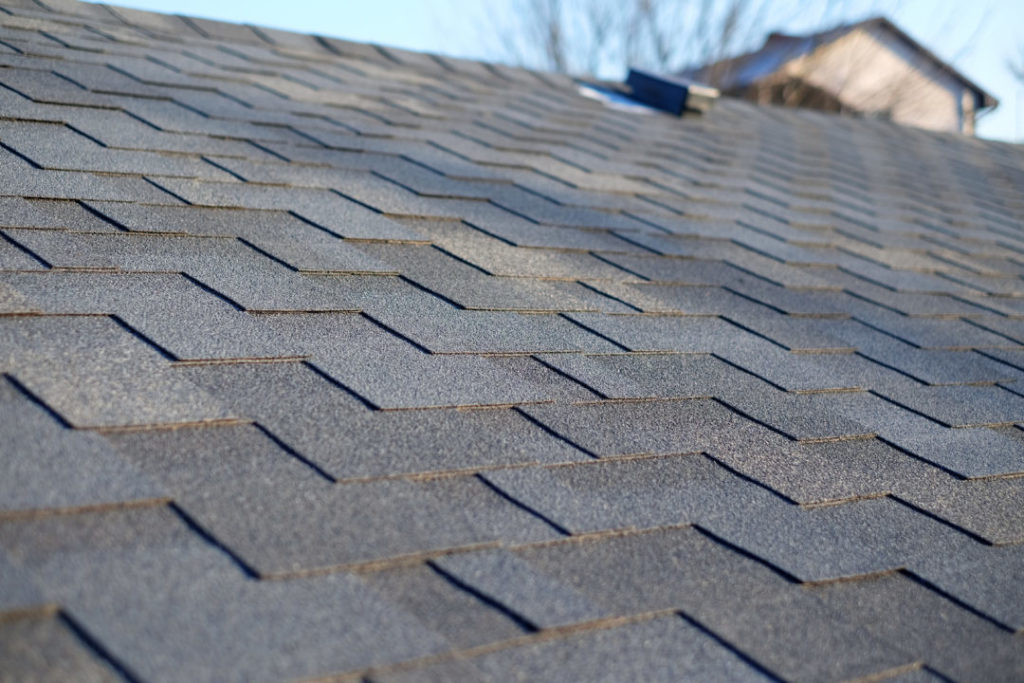Researching roofing materials was probably not high on your radar when you first purchased your home.
You might have spent time considering how you would remodel the master bath, or redesign the kitchen, but the roof of a home is rarely a concern for homeowners…
…until there’s a potential problem.
A good roof protects your home against the elements without requiring a lot of thought over the years.
But in order to gain this peace of mind, you’ll need to spend time carefully choosing a quality roofing material that needs only minimal maintenance for years to come.
Factors like your climate, your budget, and your aesthetic preference will also all play a part in your choice. To help make the process easier, we’ve weighed the pros and cons of some of the best roofing materials on the market to help you decide which option is right for you.

Asphalt Shingles
When it comes to roofing materials, asphalt shingles are probably the most common choice in the United States.
This option is easy to install, very inexpensive, and you can replace damaged shingles as needed.
Asphalt shingles last for 15-25 years when well cared for.
While this petroleum based material is not exactly a sustainable choice, you do have the option of keeping old shingles out of landfills by bringing them to recycling centers.
Because asphalt shingles are so common, their price range and quality does range widely.
If you go with asphalt, carefully check price against quality ratings so you can be sure to get the most life out of your roof.
Asphalt Roll
This roofing material comes in 100 foot rolls and is made of the same type of material used in asphalt shingles.
Rolled roofing is the least expensive option on our list, but it’s best used for flat pitches on angled sheds, porch roofs, or garages.
Rolled roofing only lasts for 5-10 years even with good maintenance practices.
But, because of its extremely low cost and easy installation, many homeowners choose to use asphalt rolls on outbuildings and simply replace as needed.
Metal
Metal roofs can be made from a variety of materials such as tin, zinc, aluminum, copper, or galvanized steel.
Metal roofs are a good deal costlier than asphalt materials, and some home owners don’t like how noisy rain or hail can sound on a metal roof.
Depending on the type of metal you use, you may also run into some corrosion issues.
That being said, metal as a roofing material is very low maintenance, incredibly energy efficient, and can last from 40-60 years depending on the material.
Metal holds up better against high winds, doesn’t burn, sheds water well, and can even be placed over old roofs.
Standing Seam Metal
Standing Seam metal roofing has become a popular option amongst home owners who are concerned about the longevity of their roofing materials.
This roofing material is made from enormous steel panels placed on the roof deck.
With a standing seam metal roof, all fasteners are covered which means they won’t rust, wear, or break down over time like the exposed fasteners in traditional metal roofing.
Standing seam metal roofs do generally cost more than traditional metal roofs, but they last for 70 years or more, are extremely durable, and are virtually maintenance free.
Concrete Tile
Concrete tiles are energy efficient, fireproof, insect resistant, and incredibly tough.
You can order tiles in virtually any color you desire, and they can even be finished with a decorative coating.
While lighter than other tile roofing materials, concrete tiles are twice as heavy as traditional asphalt shingles. Because of the weight, it’s necessary to get a professional evaluation of your home to make sure the structure can support a tile roofing option.
With a life span of 50+ years, and with a cheaper cost than clay tiles, concrete tiles are a great option – especially for those in high wind areas.
By now you probably realize that choosing proper roofing materials is an important investment that’s worth careful consideration.
Remember – the longevity of your entire home depends on the materials you choose, so don’t be afraid to take the time to get professional insight and guidance on the roof type that’s best for you.
